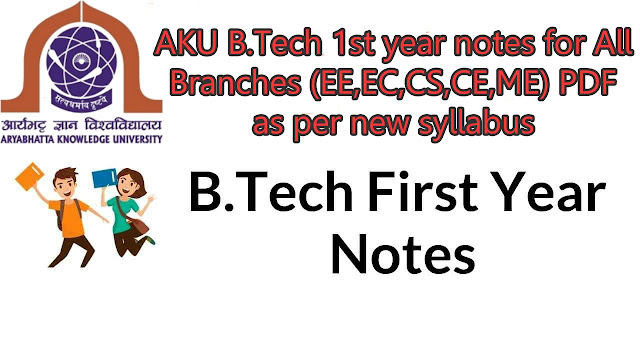NPTEL Soft Skills Week 4 Assignment Answers 2023 (July- Oct )
Introduction: Unpacking NPTEL Soft Skills Week 4 Assignment
Welcome to a comprehensive guide that unravels the core concepts covered in the NPTEL Soft Skills Week 4 Assignment for 2023 (July-Oct). This assignment brings to light essential topics including Negotiation Skills, Culture as Communication, and Organizational Communication. Throughout this article, we will delve into these topics, providing insights, expert perspectives, and practical answers to help you excel in your studies.
NPTEL Soft Skills Week 4 Assignment Answers 2023 (July-Oct): Negotiation Skills Unveiled
Negotiation skills are a vital component of effective communication, transcending various aspects of personal and professional life. Whether you're haggling over prices, discussing terms in a business deal, or resolving conflicts, negotiation skills play a pivotal role. In this section, we'll dive deep into honing these skills.
NOTE:- Answers will be updated shortly and it will be notified in our Youtube & Telegram Group. So Join Now
I. Fill in the blanks:
- Contending
- Matthew Arnold in ‘Culture and Anarchy'
- Negotiation
- Purple
- Arabs
- Ethno-relativism
II. Multiple-choice questions:
7. C. Best Alternative to a Negotiated Agreement
C. Transmission
D. Diplomacy
A. strictly follow the planning that you made before the negotiation
B. I will explain the consequences.
III. Multiple-choice questions:
12. C. It helps to understand the heterogeneity of different social groups.
A. Culture represents identity and other social discrimination.
C. Becoming cross cultural means denying the dynamic aspect of culture.
Please note that some of the questions might be incomplete or have missing options, but I've provided the correct answers based on the information provided.
Understanding the Essence of Negotiation
Negotiation is more than just a conversation; it's an art that requires finesse and strategy. The ability to understand the needs of both parties, find common ground, and reach a mutually beneficial agreement is the crux of negotiation.
Strategies for Successful Negotiation
Active Listening: One of the key pillars of negotiation is listening actively. It helps in understanding the other party's perspective and building rapport.
Setting Clear Objectives: Define your goals and priorities before entering a negotiation. Clarity on what you want will guide the process.
Creating Win-Win Scenarios: Strive for outcomes that benefit all parties involved. A win-win situation fosters goodwill and strengthens relationships.
The Role of Emotional Intelligence
Emotional intelligence is indispensable in negotiations. Being attuned to emotions, both yours and the other party's, can pave the way for effective communication and compromise.
Overcoming Challenges in Negotiation
Negotiations often encounter obstacles. These could range from conflicting interests to miscommunication. Addressing these challenges with patience and creativity is crucial.
Culture as Communication: A Unique Lens
Culture plays a profound role in how we communicate and interact. It's more than just customs and traditions; culture shapes our values, beliefs, and perceptions. In this section, we'll explore how culture influences communication.
Cultural Context in Communication
Culture provides a context that affects how messages are interpreted. It influences language usage, non-verbal cues, and even the choice of communication channels.
High-Context vs. Low-Context Cultures
Cultures can be classified as high-context or low-context based on their communication styles. High-context cultures rely on shared experiences and implicit communication, while low-context cultures emphasize explicit communication.
Cultural Barriers and Sensitivity
Misunderstandings can arise when people from different cultures interact. Being aware of cultural norms and practicing empathy can help navigate these barriers.
Intercultural Communication in the Digital Age
Globalization and digital communication have connected cultures like never before. It's important to adapt communication strategies to bridge cultural gaps in virtual interactions.
Mastering Organizational Communication
Organizational communication is the lifeblood of any company or institution. Clear, effective communication within an organization enhances productivity, innovation, and employee satisfaction.
Types of Organizational Communication
Downward Communication: Information flows from higher to lower levels of the hierarchy, conveying directives and organizational updates.
Upward Communication: Employees communicate feedback, suggestions, and grievances to higher management.
Lateral/Horizontal Communication: Communication between colleagues at the same hierarchical level facilitates coordination and teamwork.
Importance of Transparent Communication
Transparency breeds trust and reduces ambiguity. Employees are more engaged and motivated when they have access to clear information about the organization's goals and strategies.
Overcoming Communication Silos
Communication silos occur when information is trapped within specific departments. Breaking down these barriers ensures that knowledge is shared across the organization.
The Digital Transformation of Organizational Communication
Technology has revolutionized communication within organizations. Tools like instant messaging, video conferencing, and intranets facilitate seamless interaction and collaboration.
FAQs:
How can I enhance my negotiation skills?
Improving negotiation skills involves active listening, setting clear objectives, and striving for win-win outcomes. Emotional intelligence and adaptability are also key factors.
What role does culture play in communication?
Culture influences how we interpret messages, our communication styles, and our understanding of context. It can lead to either effective cross-cultural communication or misunderstandings.
How can organizations foster transparent communication?
Transparency can be promoted through open dialogue, sharing relevant information, and involving employees in decision-making processes.
What are the challenges in intercultural communication?
Intercultural communication challenges include differing communication styles, language barriers, and varying norms and values. Sensitivity and cultural awareness are essential in overcoming these challenges.
How does technology impact organizational communication?
Technology facilitates quick and efficient communication within organizations. It enables remote collaboration, real-time updates, and the sharing of information across various departments.
Why is upward communication important in organizations?
Upward communication allows employees to voice their opinions, share feedback, and contribute to the decision-making process. This inclusivity boosts employee morale and engagement.
Conclusion: Embrace Effective Communication
The NPTEL Soft Skills Week 4 Assignment for 2023 (July-Oct) introduces you to the vital aspects of negotiation skills, culture's role in communication, and effective organizational communication. By honing these skills and understanding these concepts, you'll be better equipped to excel in both academic and real-world scenarios.
Remember, negotiation is an art, culture is a lens, and organizational communication is the backbone of success. Embrace these principles and watch your communication prowess soar.





